Developed by OpenAI, ChatGPT is an AI-powered chatbot that can interact with humans in a conversational manner for a variety of real-world tasks. It is also a useful and powerful marketing tool, especially when combined with Salesforce Marketing Cloud (SFMC).
The ChatGPT chatbot/Salesforce integration can empower organizations to get more bang for their buck from the SFMC platform. This article will show you how. Let’s get started!
What is the ChatGPT API?
If you are looking to build intelligent conversational interfaces and integrate natural language processing (NLP) capabilities into your customer-facing applications, you need the ChatGPT API. This cloud-based API will help you access Open AI’s advanced language models, including GPT-3 and GPT-4 (which is why it is sometimes known as GPT-3 or GPT-4 API).
To get the API, you will need to get an API key for ChatGPT from the OpenAI API website. But first, you need to create an account on OpenAI by following this simple process:
i. Go to https://chat.openai.com/auth/login.
ii. Click on the “Signup” button.
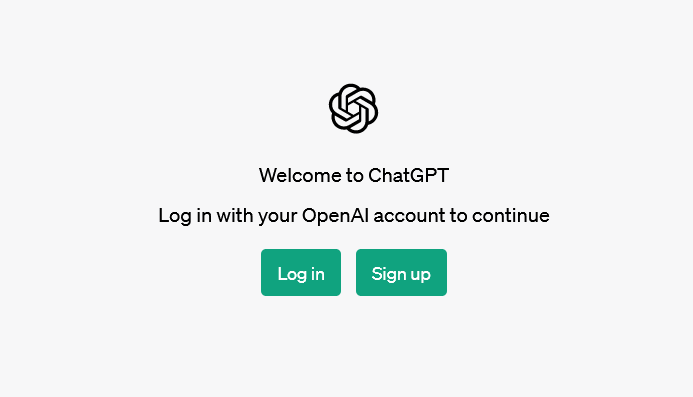
iii. Enter your email address and password or sign up using your Google or Microsoft account.
iv. Fill out the on-screen details.
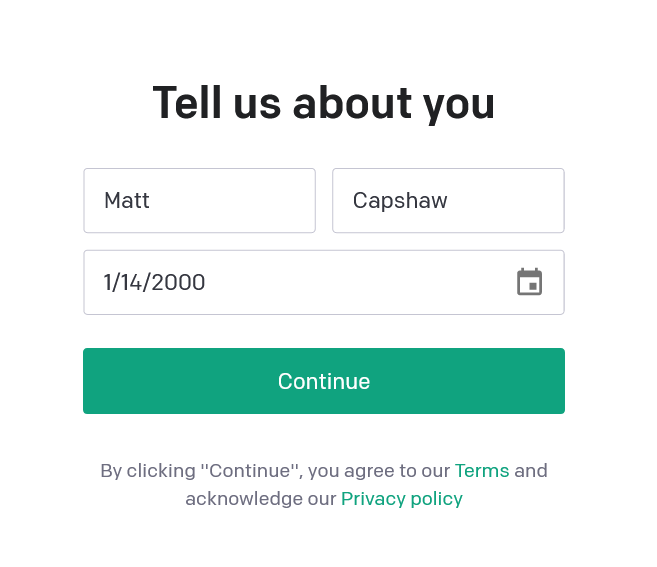
v. Once you enter all the required details, you will have an OpenAI account and the home screen will look something like this:
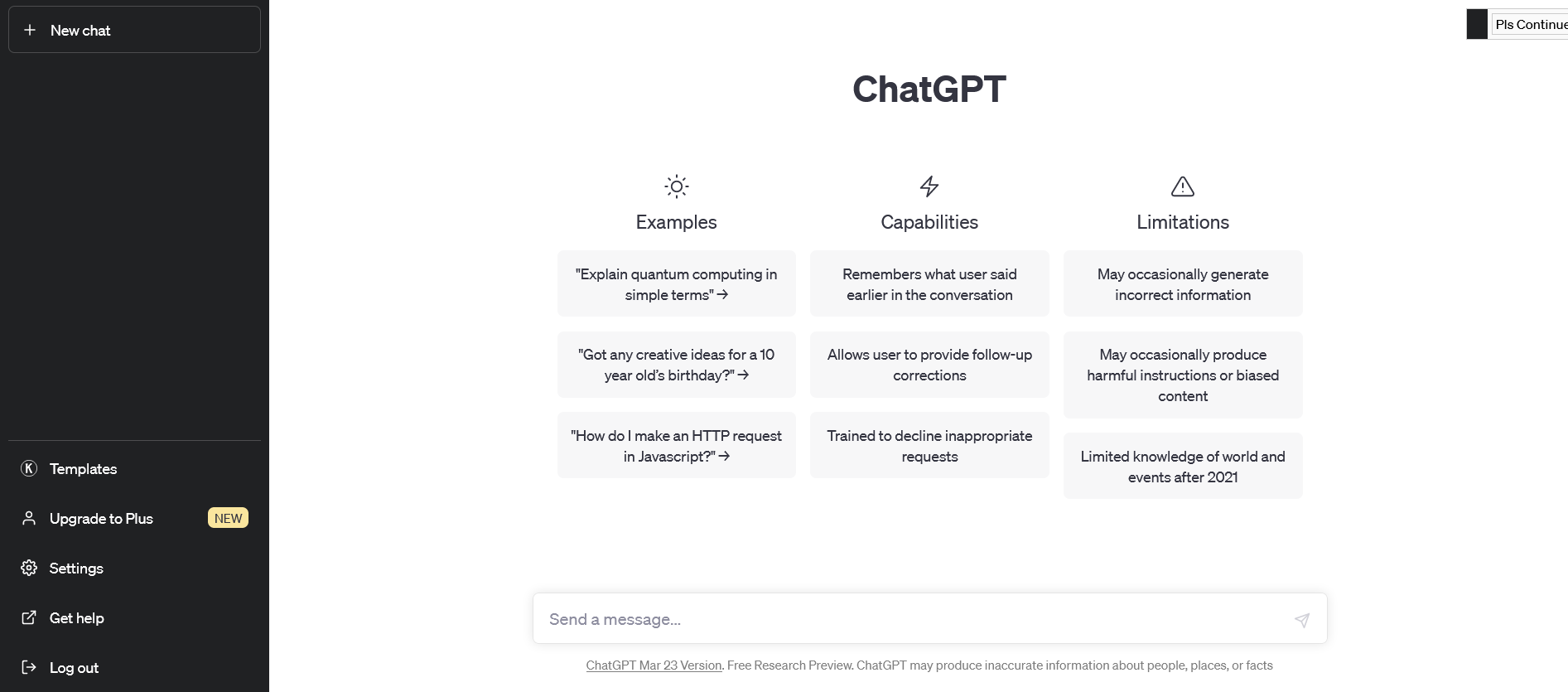
After creating your account, you will need to generate API keys to use the API:
i. Go to your OpenAI account here: https://platform.openai.com/
ii. Click on the “View API Keys” button in the top-right corner of the page.
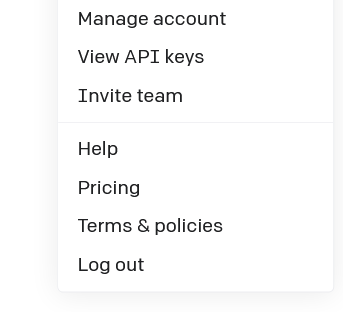
iii. Generate a new API key by clicking on the “Create new secret Key” button.
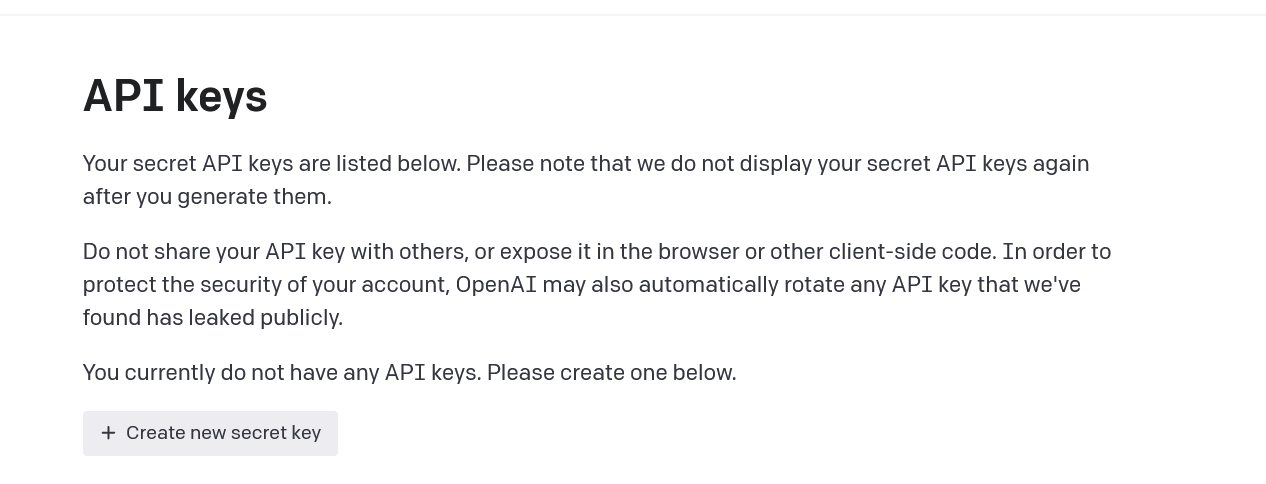
Use the generated key to integrate ChatGPT and its NLP capabilities into your applications.
How to Use ChatGPT API
The ChatGPT API provides SDKs and client libraries in many programming languages. To use the API, you need to install the SDK library for your preferred language. For example, if you use Python, you can install OpenAI’s Python library from here to connect to GPT-3 via the API. Here’s the command you will need to run:
You can also create a new instance of the API by providing the API key you generated earlier and selecting your required configuration options. After getting an instance and setting up your language-specific client library, you can perform many tasks with SFMC that ChatGPT is trained for, such as:
- Generating text based on a given prompt
- Answering questions in natural language
- Creating personalized email copy for different kinds of campaigns
- Accelerating Salesforce chatbot implementation
- Give your applications a natural language interface
To know more about interacting with the API, using API keys for authentication, running API requests, and creating completions for provided prompts and parameters, access OpenAI’s documentation here.
What Can You Do with ChatGPT Salesforce Marketing Cloud Integration?
Here are four amazing uses of ChatGPT chatbot/Salesforce integration.
1 Automatically generate email content
ChatGPT’s generative AI capabilities can help you generate real-time email content.
Suppose you want to send season’s greetings to your customers via email. All you need to do is log into your OpenAI account and give a “prompt” to ChatGPT that may look something like this:
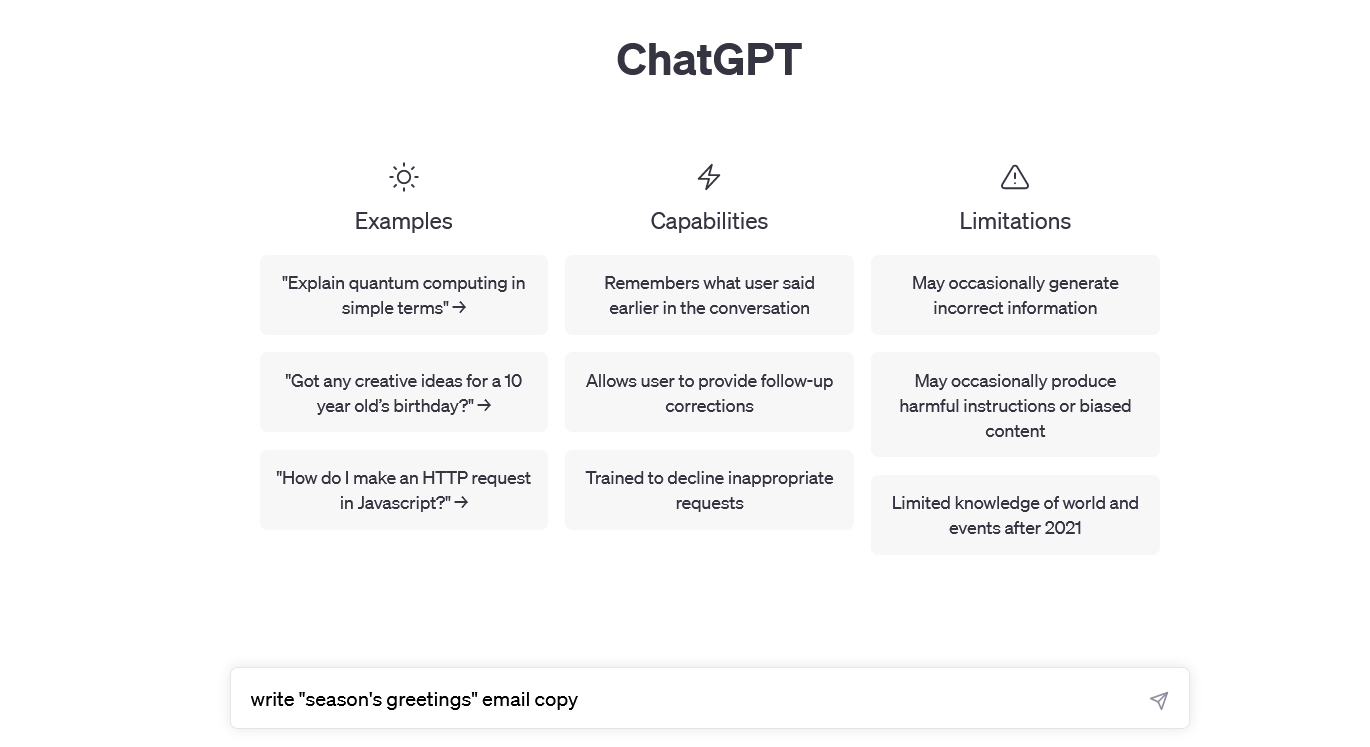
ChatGPT will understand the natural language prompt and respond with human-sounding copy in just a few seconds:
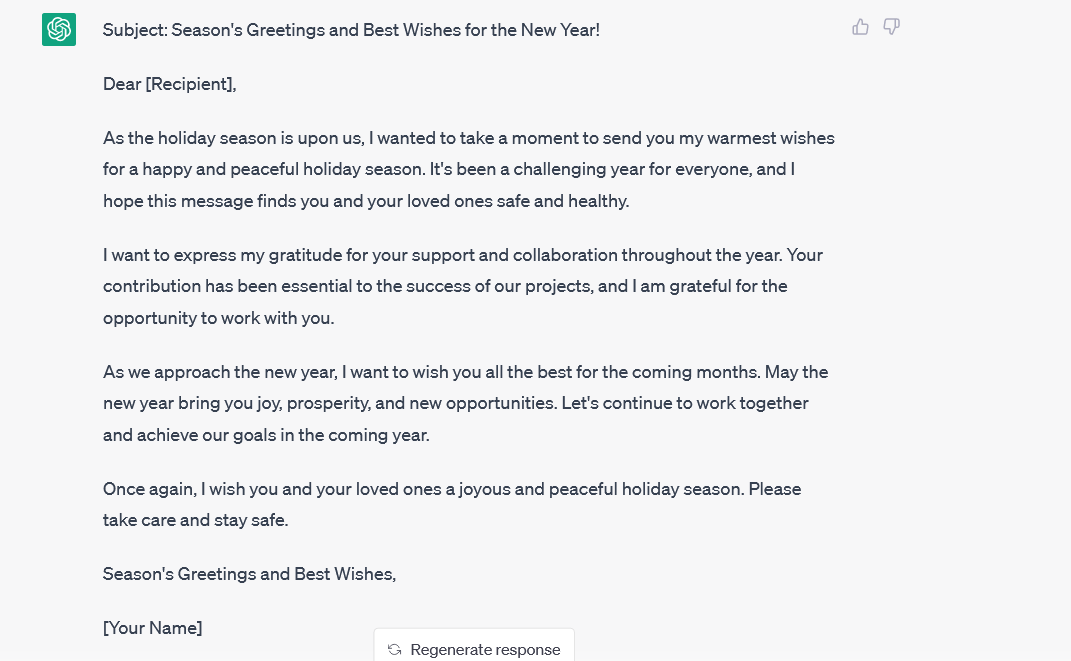
You can regenerate the response as many times as you like. Each time, ChatGPT will provide new copy:
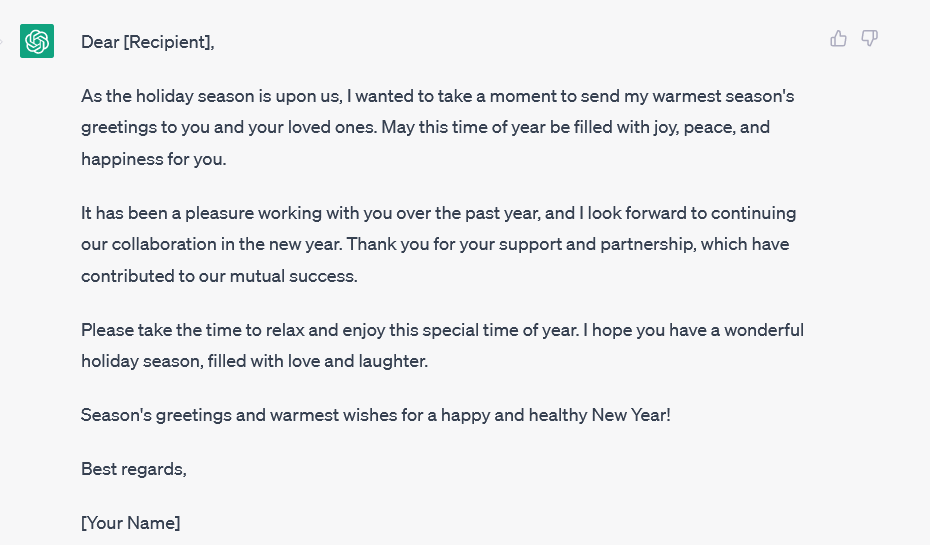
Your Marketing Cloud email specialist can then plug the text into a Season’s Greetings email to create the final email. Add as many bells and whistles as you want to make the messaging – and your brand – stand out in recipients’ inboxes. SFMC and its templates are highly versatile, so your emails can be as simple or as creative as you like:
What’s great about ChatGPT for email copy is that it will help you:
- Auto-generate every part of your email, including subject lines, copy, and calls to action
- Save time and resources on creating high-quality content
- Generate personalized messages that resonate with each subscriber*. You will have to train ChatGPT on customer data (e.g., demographics or purchase history) and use the chat completion API endpoint
- Create more targeted campaigns and messages, including product recommendations and special offers
- Perform A/B testing by generating multiple variations of an email and testing them on smaller audiences to determine which version performs best
* Avoid using the API endpoint for bulk sends because each Saleforce email template will make a separate API call to ChatGPT, which will cost you more “tokens” (pieces of words, with 1 token = 0.75 words) and increase your API costs.
2. Create validation rules to check if an email field is blank or if it doesn’t contain a valid email address
As a marketer, you want your brand’s email messages to reach the right audience at the right time. But if your records contain blank email fields or don’t contain valid email addresses, you will end up with too many bounces and too few opens and clicks. The result will be a very low ROI for your email marketing program.
To avoid these issues, you can create validation rules for SFMC contacts. Validation rules will allow you to set true/false conditions that will generate a custom error message and help you maintain subscriber data quality per your pre-defined standards. You can create validation rules to verify that a contact record has a valid email address, if name fields (first or last) are blank, if the email address is in a valid format, etc. While you can manually create validation rules, ChatGPT will make the process much easier.
All you have to do is enter a simple prompt like, “write a validation rule for salesforce contacts”:
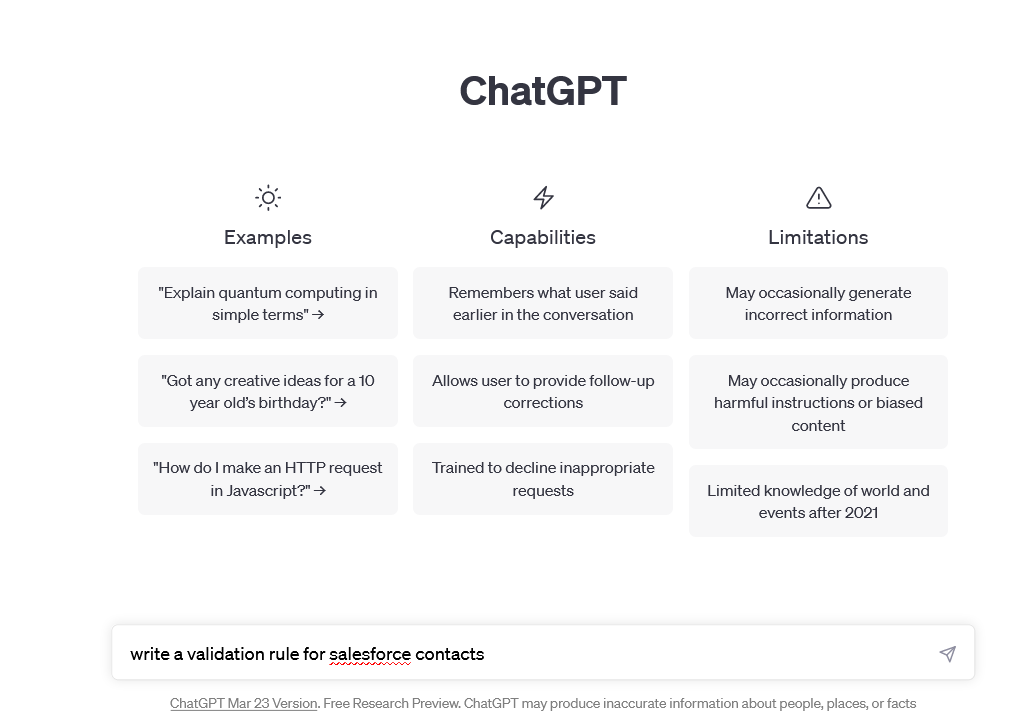
ChatGPT will respond very quickly with usable examples:
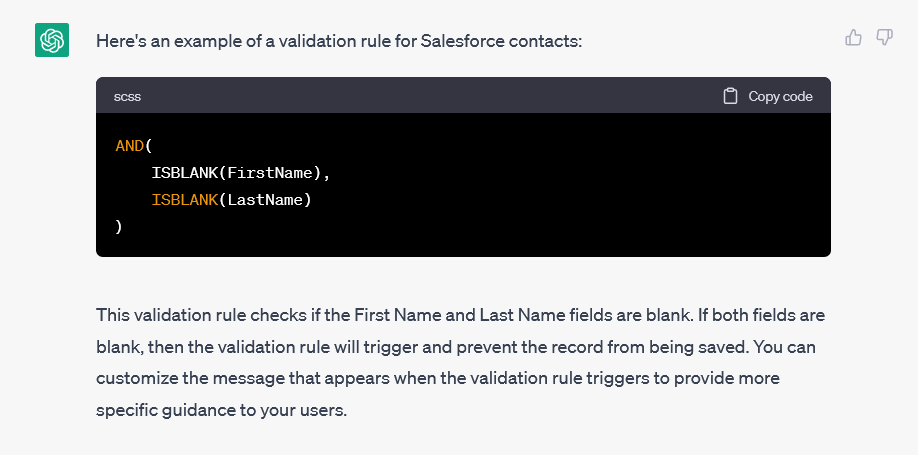
As with email copy generation, you can generate as many validation rules as you like. Click on regeneration response and ChatGPT will provide a new response each time:
Response #2
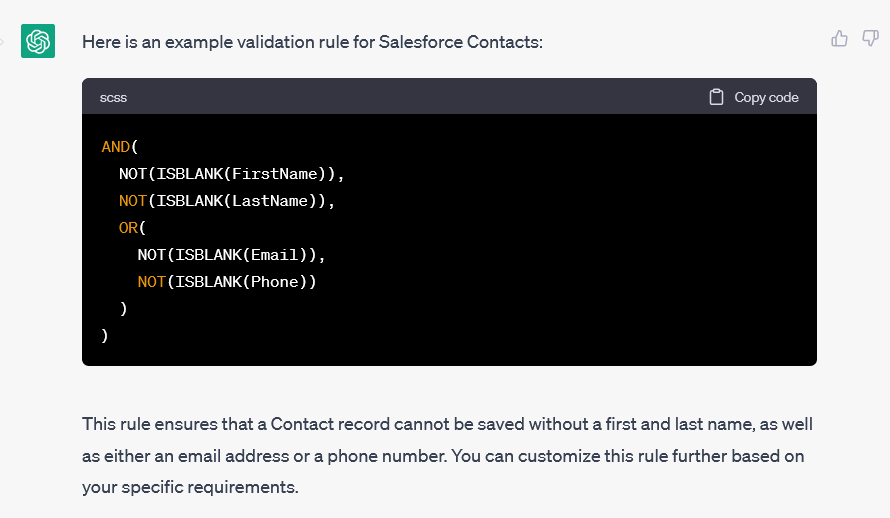
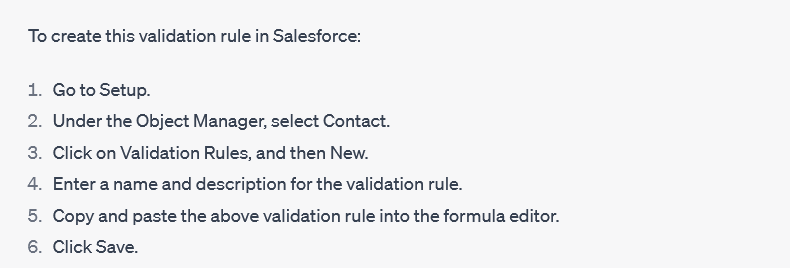
Response #3
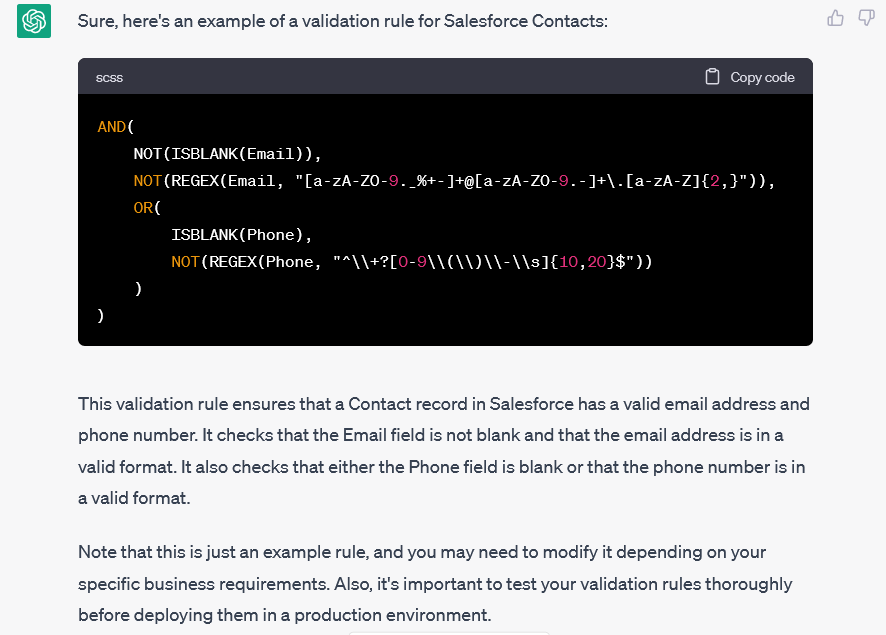
3. Create invocation actions to push subscribers towards a particular action using SFMC Account Engagement
SFMC Account Engagement will help you automate and customize cross-channel journeys and automatically deliver dynamic, relevant email content to the right audience at scale. And with External Actions in Account Engagement, you can do much more with SFMC than simply sending emails – you also send webinar invites, SMS messages, surveys, and lots more.
ChatGPT will help you create these external invocable actions and enhance the usability and extensibility of your SFMC platform. For example, you can send prospects to a webinar using an external action using a simple and clear prompt in ChatGPT:
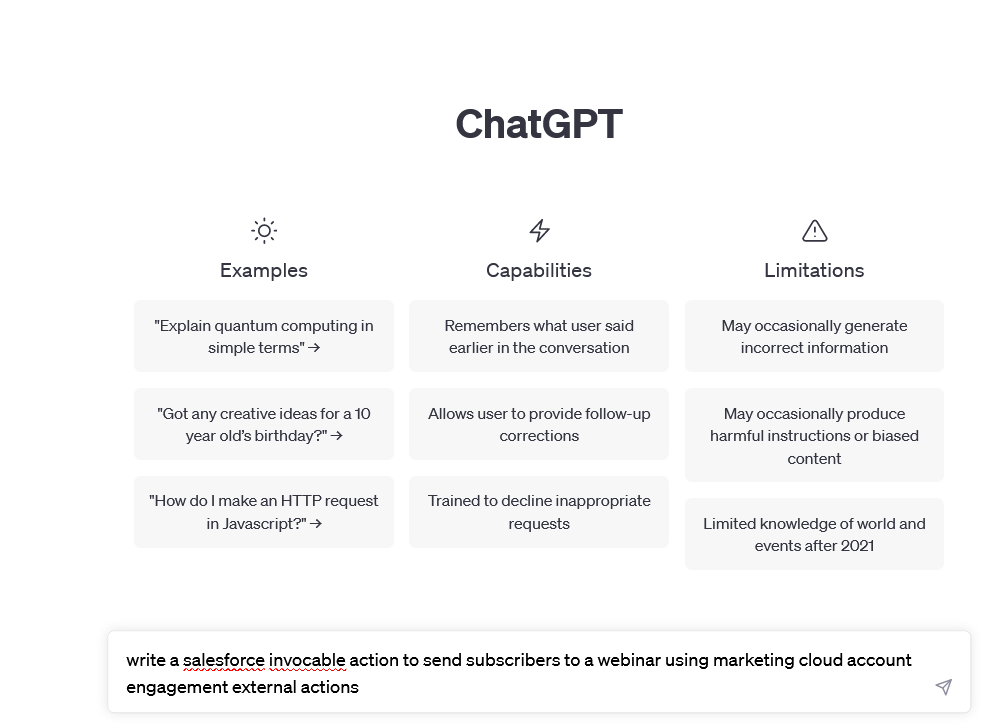
In response, ChatGPT will generate some external actions you can easily use in Account Engagement:
Example 1
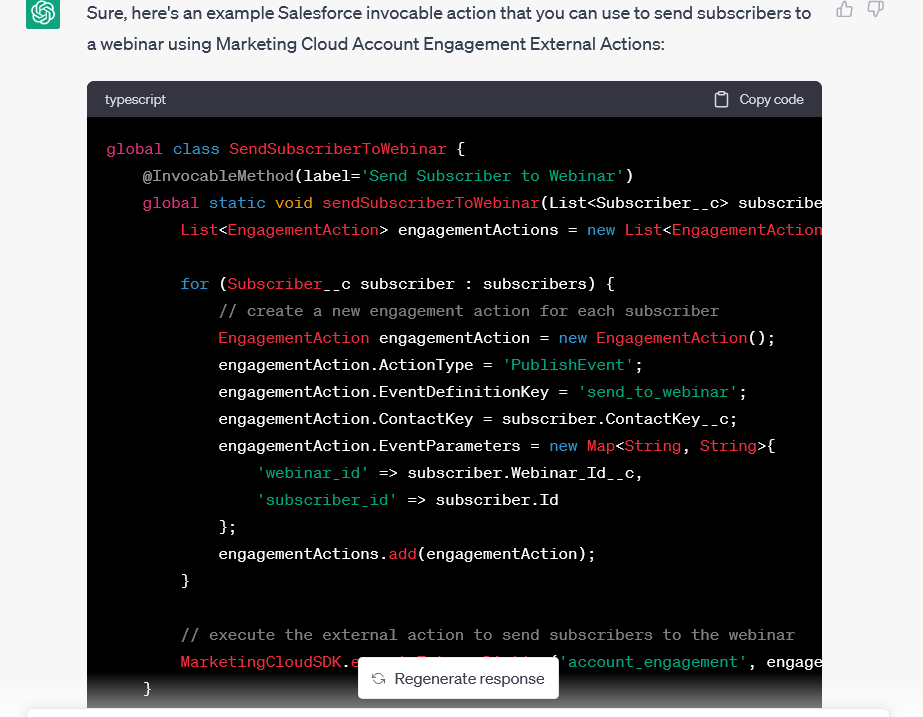

Example 2
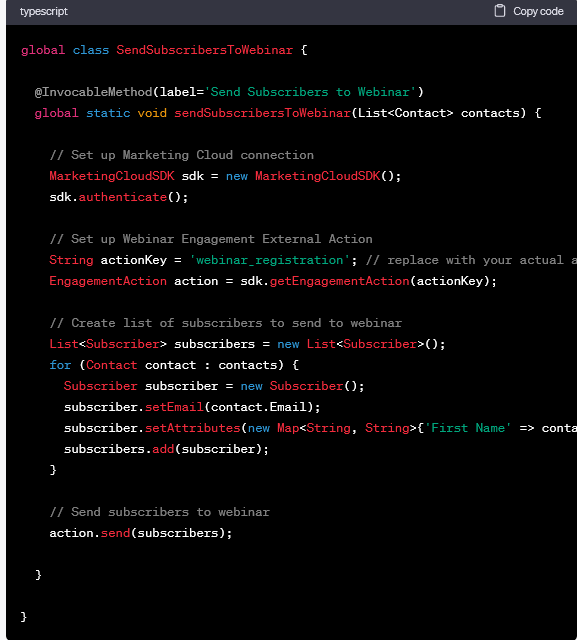

4. Create chatbots
ChatGPT Salesforce Marketing Cloud integration is also useful to set up chatbots that will interact with your subscribers or customers, especially via email. For example, you can create a chatbot that can:
- Answer common customer queries in real-time
- Send personalized product recommendations based on customer data
- Process orders and initiate shipping
- Send useful branded content, such as eBooks or white papers
- Capture prospect information and nurture leads towards conversion
ChatGPT Can Give Wings to Your Email Marketing Program
ChatGPT can help your email marketing team uncover new cases with SFMC and unleash more of its potential. Want to know more about the benefits of ChatGPT/SFMC integration? Contact Email Uplers.


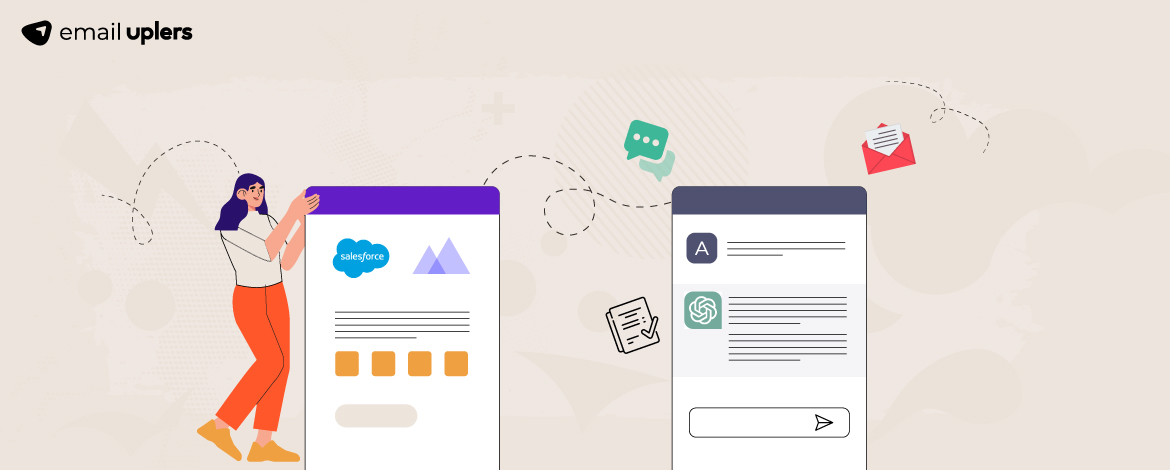
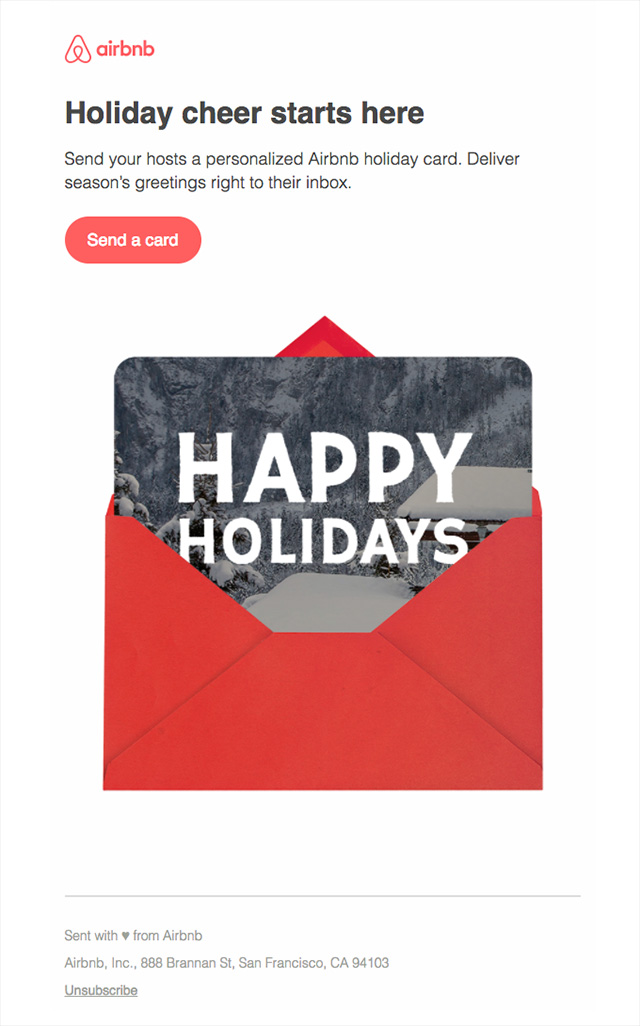
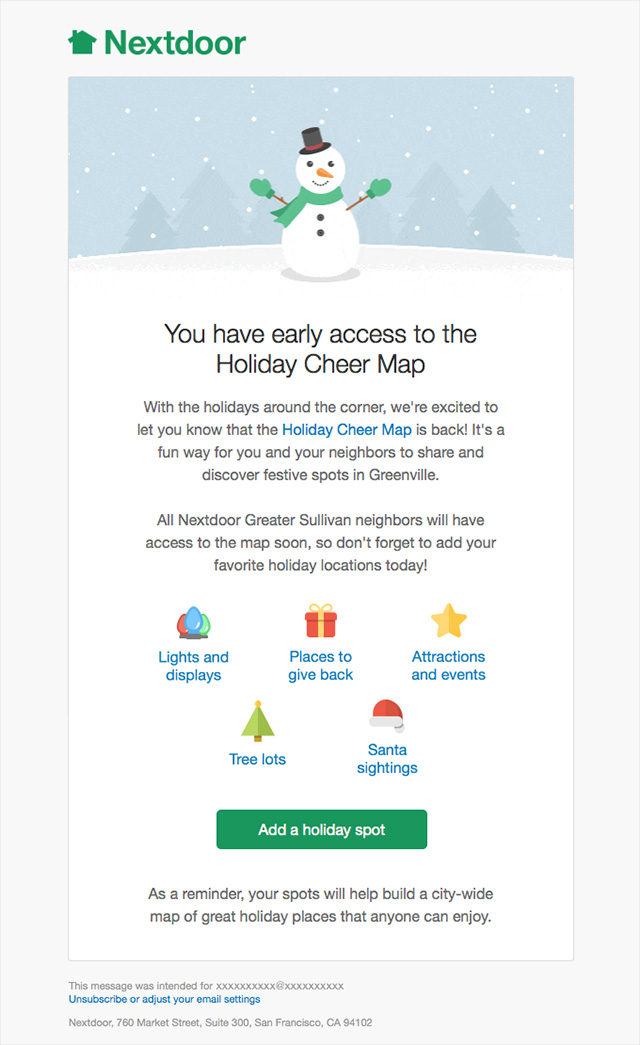

Chintan Doshi
Latest posts by Chintan Doshi (see all)
Designing Bulletproof Email Buttons on Your Mind? Here's All You Need to Know!
11 Tools to Successfully Manage Your Offshore Email Development Team